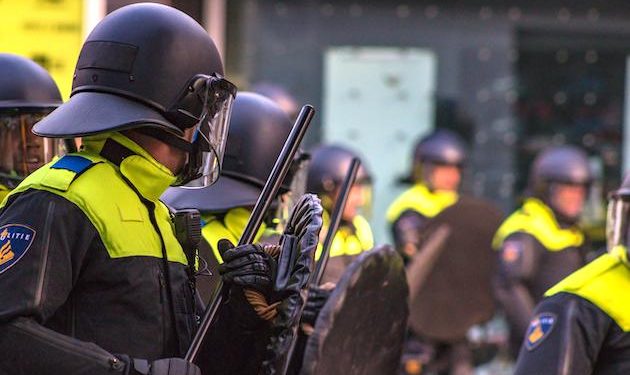- The United States has imposed sanctions on seven Chinese officials, all deputy directors at the China-Hong Kong liaison office, due to Beijing’s crackdown on democracy in the former British colony
- Terming it an erosion of the rule of law in Hong Kong, the sanctions, posted by the U.S. Treasury Department, target individuals used by Beijing to orchestrate its policies in the Chinese territory
- According to critics, Beijing implemented that law last year as part of a crackdown on pro-democracy activists and a free press
WASHINGTON, D.C.: The United States has imposed sanctions on seven Chinese officials, all deputy directors at the China-Hong Kong liaison office, due to Beijing’s crackdown on democracy in the former British colony.
Terming it an erosion of the rule of law in Hong Kong, the sanctions, posted by the U.S. Treasury Department, target individuals used by Beijing to orchestrate its policies in the Chinese territory.
Specifically named were Chen Dong, He Jing, Lu Xinning, Qiu Hong, Tan Tienui, Yang Jianping, and Yin Zonghua.
“In the face of Beijing’s decisions over the past year that have stifled the democratic aspirations of people in Hong Kong, we are taking action. Today we send a clear message that the United States resolutely stands with Hong Kongers,” said U.S. Secretary of State Antony Blinken when announcing the sanctions.
The Treasury Department referred to a separate updated business advisory issued jointly with the departments of State, Commerce, and Homeland Security that highlighted the U.S. government’s concerns about the impact of Hong Kong’s national security law on international companies.
According to critics, Beijing implemented that law last year as part of a crackdown on pro-democracy activists and a free press.
Since China imposed the national security law to criminalize what it considers to be subversion, secessionism, terrorism or collusion with foreign forces, most pro-democracy activists and politicians have found themselves ensnared by it or arrested on other charges.
At a news conference on Thursday, President Joe Biden said the Chinese government had broken its commitment on how it would deal with Hong Kong since it returned to Chinese control in 1997.
China had promised universal suffrage as an ultimate goal for Hong Kong in its mini-constitution, the Basic Law, which also states that the city has wide-ranging autonomy from Beijing.
Chinese Foreign Ministry spokesman Zhao Lijian said at a regular news conference in Beijing before the actions were formally announced that the United States should stop interfering in Hong Kong, and that China would make a “resolute, strong response.”
A source told Reuters on Thursday that the White House was also reviewing a possible executive order to assist in immigration from Hong Kong, but that it was still not certain to be implemented.
U.S. Deputy Secretary of State Wendy Sherman is preparing a visit to Japan, South Korea and Mongolia next week, with no mention of any stop in China on her agenda.
“We hope that any additional U.S. actions related to Hong Kong will remain targeted, and that Washington will avoid policy choices detrimental to Hong Kong’s people,” said Anna Ashton, vice president of government affairs at the U.S.-China Business Council.





